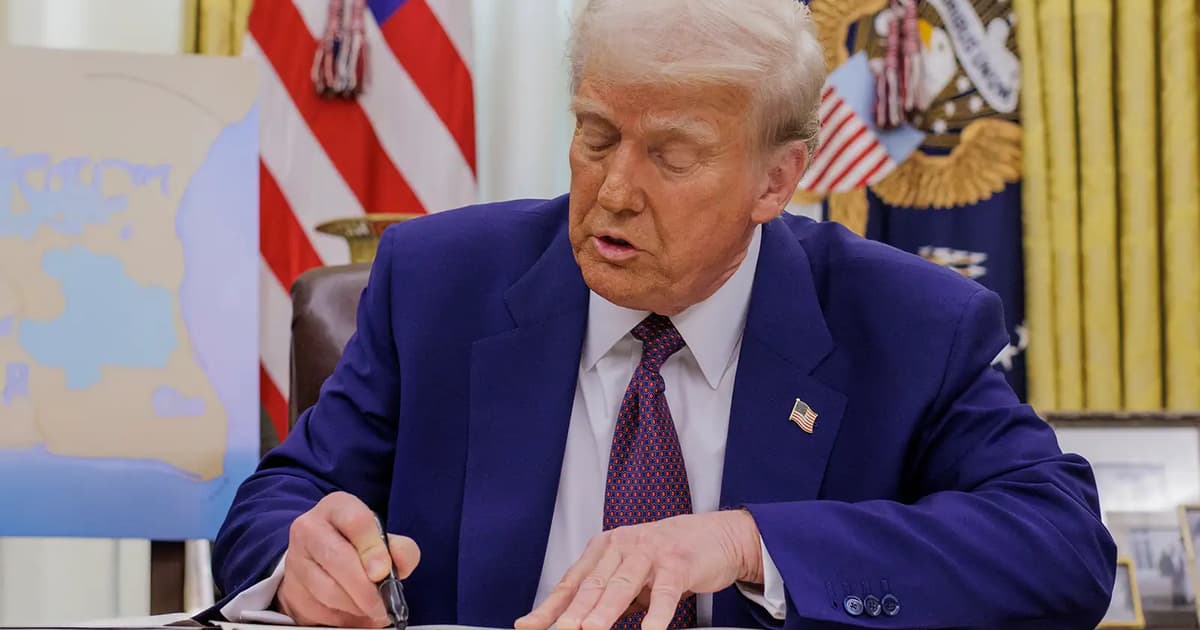
Malaysia now faces a US reciprocal tariff of 19%. Thankfully, some goods are exempted – gloves and semiconductors among them. Things could’ve been worse.
The tariff means every dollar of our exports to the US will incur an extra charge of 19 cents on arrival at US customs before the said export is allowed into the country. Or something like that, depending on where you get your information.
Many in the US really believe it’s the exporting countries that pay the tariffs, so the US gains revenue at no cost to its people. They’re not totally wrong.
A Goldman Sachs economist recently estimated that exporters will shoulder about a quarter of tariffs, mostly through price discounts. That still leaves three-quarters passed on to the customers as higher prices, or swallowed by the merchants, resulting in reduced profits or even losses that threaten their business.
By the way, President Donald Trump has asked for that Goldman Sachs economist to be fired. Being a bearer of bad news, whether factual analysis on tariffs, economics, or labour statistics, etc, carries tremendous risks in today’s America.
Certainly, billions are being collected from tariffs. Many Americans seem to be happy about that. I do wonder whether they’re equally happy about the tariffs they have to “pay” to those foreign countries that levy them on American exports.
In the long run, rather than exporters continuing to take a hit by giving discounts – or paying those tariffs, if that’s what you believe – they’d just pivot away and do business with other friendlier parties.
Or, if they’re confident about their products, they’ll just force their American customers to pay the tariffs. That, or force the US to exempt their goods from tariffs, as in the case with our rubber gloves and semiconductor exports.
In these scenarios, either there’ll be inflation or there’ll be no tariff revenues collected. After all, on things like coffee or pineapples or orange juice or sophisticated machinery to build modern EV battery factories, there’s just no way the US can substitute them with their own local products.
I can’t wait for Goldman Sachs to opine again on the impact of these scenarios, if they dare.
How did Malaysia fare?
Now, here’s the big political question: could Malaysia have done better with the Trump administration in negotiating lower tariffs for ourselves?
I don’t think so. This presupposes that the US tariffs are logical and rational economic acts, amenable to logical and rational negotiations.
But these tariffs certainly aren’t. The US has levied tariffs for reasons that range from addressing economic imbalances to enforcing border security (Canada) and protecting the “national security” of aluminium and steel (Canada again) to punishing BRICS to even meddling with Brazil’s domestic politics.
I’ve written earlier that tariffs are now America’s go-to revenue tool, given the antipathy borne by the current regime of right-wing toxic meritocrats towards paying income taxes.
Given the rising US budget deficit and national debt, the near-record costs of servicing those debts and the reduced revenues from income taxes, tariffs are becoming even more critical tools to fund the US government.
Malaysia has apparently agreed to abolish all tariffs on US imports. I doubt, however, that it would really make much of a difference to us ordinary Malaysians. US products, apart from big capital goods such as aircraft and computers, aren’t staples of our lives here.
Regardless, Malaysians would need to continue negotiating to chip away at the US tariffs, bit by bit. The Americans know, in spite of their public posturing, that tariffs are a blunt instrument that hurt all parties, including themselves.
India’s travails
Could we have fared better had we, as they say, “bent the knee” to the US? I doubt it. Countries such as Vietnam, Cambodia and even the UK, which rushed to seal trade “agreements” with the US, didn’t come out of it very well.
The misfortune that has befallen India, now facing huge secondary tariffs because of their continuing purchase of Russian oil and gas, is especially telling. It sounds like the US is enforcing international agreement on sanctions against Russia, but a more cynical reason could be that these tariffs are simply to force India and the other nations to buy American oil and gas instead.
India once thought it had a special relationship with Trump, being as it is a counterweight to China and also in no small measure due to their shared Islamophobia.
That didn’t quite work out for them. Additionally, Trump’s increasingly warmer relationship with Pakistan has added insult to injury. And the recent hundred-fold increase of the US’s H-1B visa fees seems to purposely target Indians, who form three-quarters of the visa holders.
All these have pushed India – an emerging superpower – closer to Russia and even to China, its perennial enemy at the (literal) gate. Not quite a win for the US.
American Cold War era politics used to ask who lost this country or that, such as Vietnam or China, to the “other side”. When the question is inevitably asked about India, the answer will be very clear: Trump.
With friends like these
Canada is a good case study to learn from. They’re the most unexpected and unlikely victim of the Trump administration’s ire, through tariffs and the threats of annexation.
Yet these external challenges have brought the country closer together. Canadians are acting rationally and are methodically diversifying their economic, political and even defence ties with other friendlier regions such as Europe and Asia.
Canada hasn’t written off the US for sure, but is behaving as if it, too, has cards to play. The US ambassador to Canada had publicly accused the Canadians of being “nasty” to the US, conveniently forgetting that they had well and truly earned this nastiness.
We, too, must look beyond the US. Yes, it’s a big partner, but the rest of the world is bigger – and friendlier.
We must ensure we have a strong voice in groupings, new and old, such as BRICS and Asean. BRICs already comprise more than half the world’s economy, and Asean is no slouch either.
China, a member of BRICS, is already our biggest trade partner, and will just get bigger. Of course, China has its own national interests, but membership and a strong voice in groupings like BRICS and Asean will moderate some of these dangers.
Plus, where do we look for comfort and protection nowadays anyway? The era of Pax Americana is fast fading, and now is not the time to be alone out there in the big, bad world.
All in all, I’d say we’re still in the game. Nobody can point to any moment when we missed an opportunity to ingratiate ourselves with the US and enjoy a lower tariff, because that wasn’t the case.
The game plan
What we can say is that Malaysians are good at diplomacy. We punch above our weight and are generally liked and respected by most nations.
Our leaders may get a chance to prove that soon, if Trump shows up at the Asean summit in Kuala Lumpur in October.
If he does, we can roll out the red carpet on every inch of Malaysian soil that he walks on. We can bring out our many royals to charm him and make him feel kingly. We can have such vast vistas of people dancing and singing to shame even North Korea.
Gulf nations have shown the way: we might not buy Trump a jumbo jet, but we can do the rest.
He’ll see we don’t live in trees, and that we’re quite a big player in the region. He’ll have many US businesses telling him Malaysia is a friend and a great place to do business.
We’ll flatter him as the greatest man alive. Nominate him for any Nobel Prize he wants. Create new national honours just for him. Promise to buy Boeing planes (without mentioning Airbus delays). Pledge billions in investments – US$500 billion is the going rate.
Come on, Malaysia, let’s do what Malaysians do best – bodek! It’s part of our culture and a critical fabric of our politics, society, and business. Time to up our game here. Malaysia Boleh!
We must make sure we don’t do or say anything stupid until Trump is away, obsessing about some other new shiny objects. We’ll do whatever is necessary to survive in these scary times.
But we must also build on our other relationships and strengthen and diversify our economy. Because one day, this madness will be over, and we must be prepared for a very different world, one where we’re no longer just a bit player waiting for crumbs at the big table.
The views expressed are those of the writer and do not necessarily reflect those of FMT.






